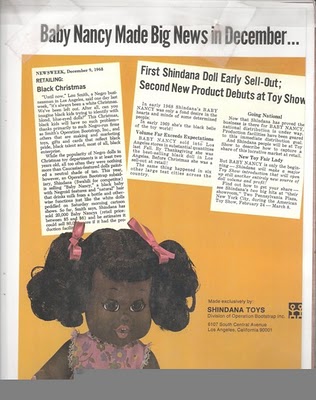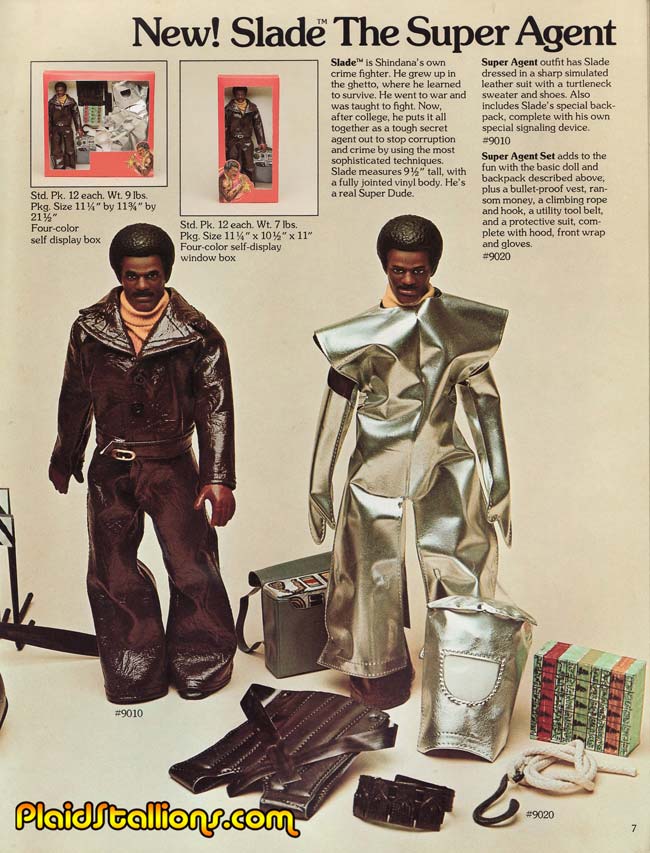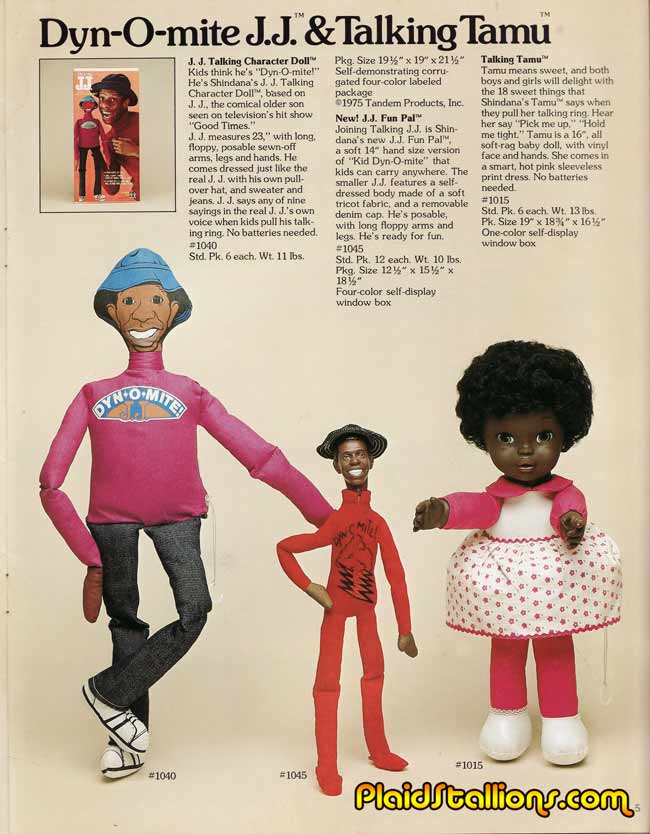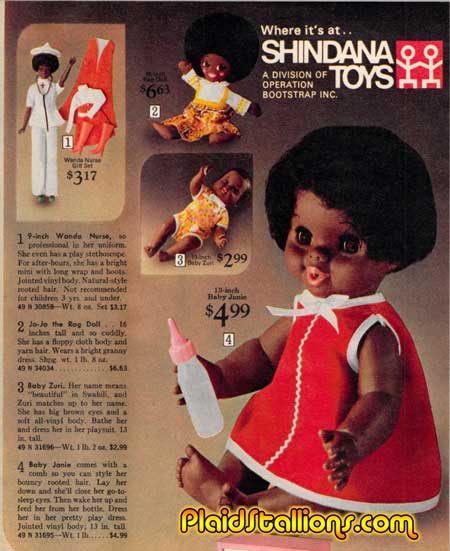
Whew! Finally! Its FRIDAY Y’all!
Here’s a black history fact that I knew nothing about: Shindana Toys

Shindana Toys, a division of Operation Bootstrap, Inc., was a South Central Los Angeles, California cooperative toy company formed in 1968, one of many Operation Bootstrap initiatives undertaken following the 1965 Watts Riots. Company proceeds supported businesses in the Watts area. Shindana (a Swahili word roughly meaning “to compete”) Toys was community-owned and founded by Louis S. Smith, II and Robert Hall. The latter was the company’s first CEO and President; though he was succeeded in both posts by Smith. The Chase Manhattan Bank, the Mattel Toy Company, Sears Roebuck & Co., and Equitable Life Assurance helped finance portions of the Shindana Toys operations.
Shindana Toys was historically significant for being one of the first toy companies (if not the first) to market ethnically-correct black dolls. A goal of the company was to raise Black consciousness and improve self-image. In a 1970’s Los Angeles Associated Press article, company president, Louis Smith said, “We believe that only by learning to love oneself can one learn to love others…Shindana believes that by marketing black dolls and games that both black and white children can learn to relate to at an early age, the company can foster the spirit of what Shindana is all about, love.”
From a shop on Vermont Avenue, Los Angeles, California, Doris Conner, an African American, entrepreneurial businesswoman—along with her daughters, Lynne and Tuesday Conner, created, designed, and manufactured many of the clothes worn by Shindana Dolls. They also manufactured the Flip Wilson doll.
In its first year, Shindana produced a single product – a Black doll named Baby Nancy, the first ethnically correct Black doll made in America. Many later Shindana Toys dolls featured names that were Swahili in origin. Baby Nancy was designed with truly “Negroid” features which were in contrast with the typical pattern of Caucasian dolls simply painted Black, and she was a success in the marketplace. Production of Baby Nancy dolls began in November 1968, and the combined efforts of Shindana and Mattel made it possible to manufacture and ship 8,000 dolls in time for the first Christmas season.
In 1971, sales reached $1.5 million dollars.
Operation Bootstrap contracted with Mattel Toymakers to create a talking voice unit, just like the one invented for Chatty Cathy in 1960, for their doll Tamu in 1971. The popular Talking Tamu (Swahili for “sweet”) doll was designed to say the following 11 phrases when you pulled her “talking ring”:
- My name is Tamu.
- Cool it, baby.
- Do you like my dress?
- Hold me tight.
- I’m sleepy.
- Can you dig it?
- Let’s play house.
- I love you.
- Tamu means ‘sweet’.
- I’m hungry.
- I’m proud, like you.
Tamu was featured in the Sears Roebuck, JC Penney, and Montgomery Wards Christmas catalogs, and available in most stores where ever toys were sold.
Pictures from the Shindana Toy catalog:



Thanks in part to its acquisition of a company that produced board games, Shindana also started distributing games. These games included titles like “Jackson 5ive Action Game,” “The Black Experience,” “The Afro-American History Mystery Game,” “Captain Soul,” and “The Learning Tree.”

While Shindana is well known for being the first US company to mass produce ethnically correct Black dolls, the company incorporated Asian, Caucasian, Hispanic, and Native American dolls into their product lines before operations ceased in the early 1980s.

